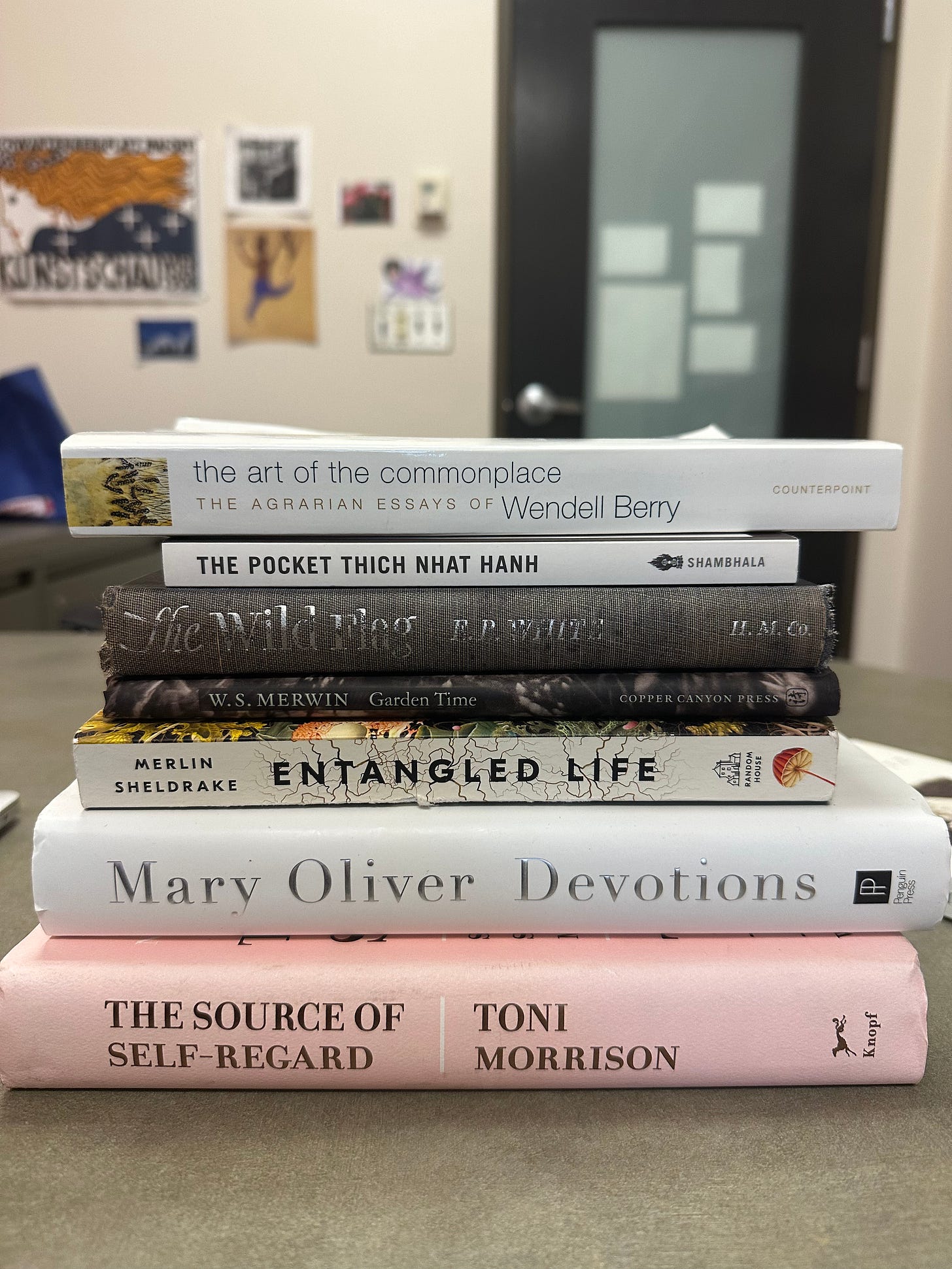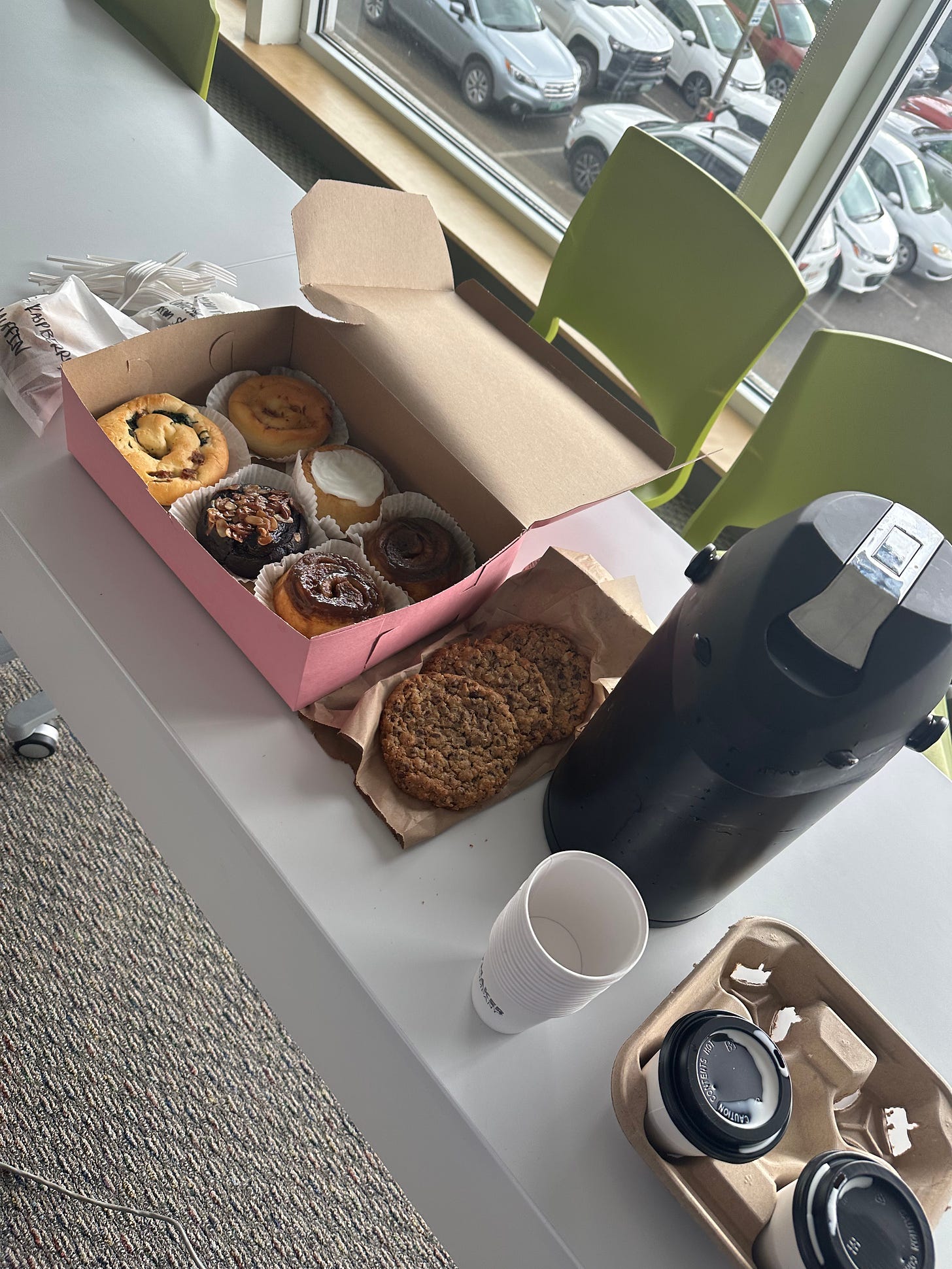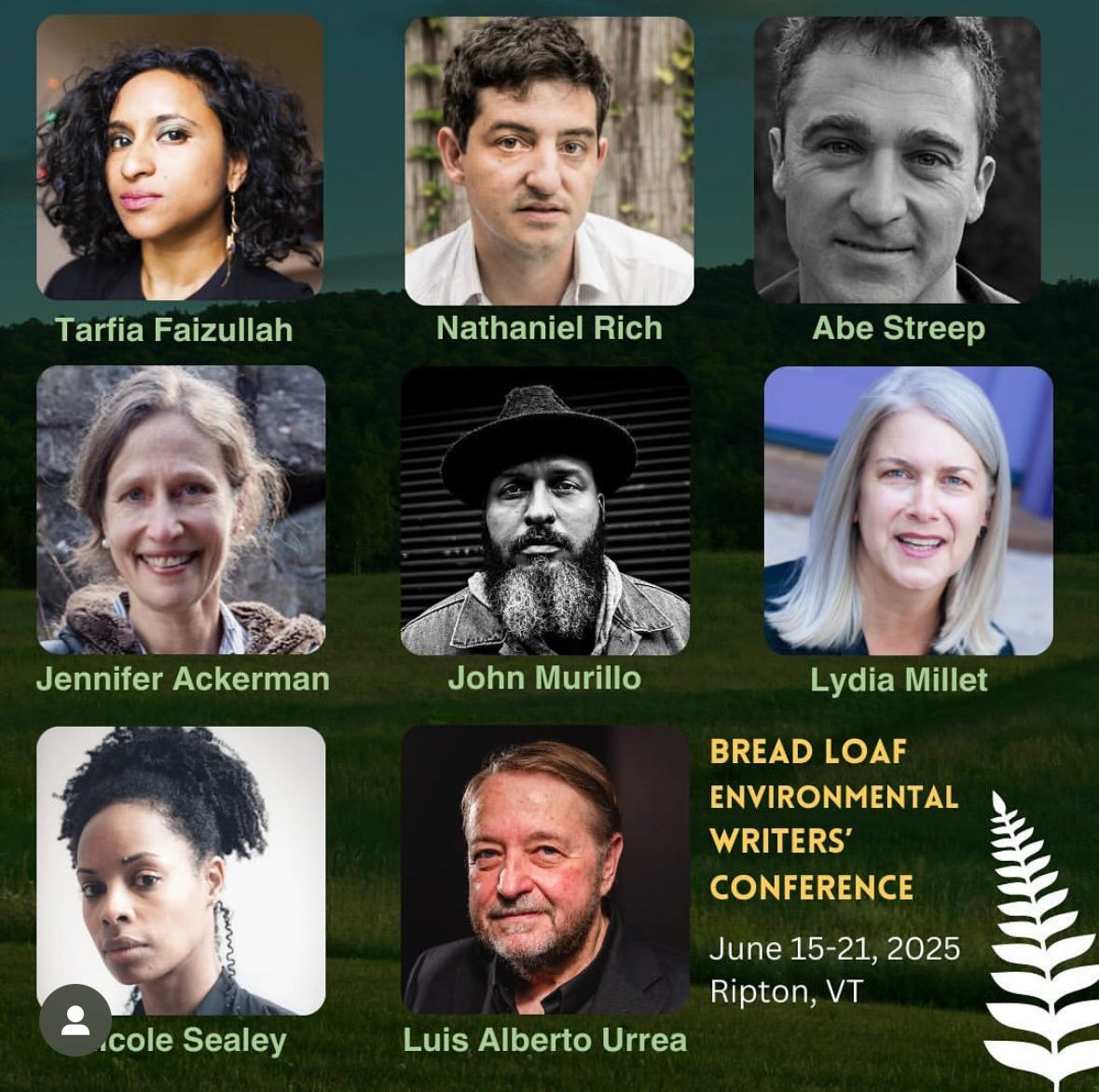My dad has a practice which is pretty much this: if something awful happens to you, you can throw yourself a three day funeral, and then you have to make a plan. The idea is to honor and make space for your grief, but not to become immobilized by it.
When I completed yoga teacher training in Brattleboro years ago, my instructor often said: best effort, then let go. I use this concept a lot: with writing, with relationships, with projects. Harder to do with your country.
Plus, this idea centers on the notion that you did your best. That you know what your best looks and feels like. That you’re the kind of person who can be honest with herself. (Questions which come up for me: did we give our best? Did we give what we wanted to give - or what was needed?) I suppose many of us are left holding questions, particularly: What can we hope for now? What can we do?
I know that right now I don’t want to write anything pedantic, angry, or self-righteous. I don’t want to state the obvious, or pretend I’m an expert in politics. I’m not. Maybe, if anything, I want to offer you a little distraction, maybe a little comfort by sharing what is bringing me meaning during this time.
I don’t know what’s right for you in this moment - you do. I know I need a bit of a sacred pause, some space for grief, and I also need rest, beauty, connection. Then, soon, a plan.
*
In my post-election grief, motherhood and teaching gave me reasons to wake up. These roles gave purpose to my day. I had children to guide, students to lead. I felt inspired to be the person they needed me to be.
The morning after the election, I lead my advanced students in a meditation, and brought them pastries and a carafe of coffee, half of which I spilled in the parking lot.
We sat on the floor. Something I realized during the pandemic, which carried over into this week: I care more about my students’ development as thinkers and human beings than I do their grades. Good writing largely comes from good thinking. Good thinking usually comes from engaged listening and heart-forward living. The best moments and ideas, I’ve found, spring from post-traumatic enlightenment. As much as we care bear it, we need to have our hands dirty in the world’s problems. We need to continually revise and improve our humanity.
Yesterday I read from Toni Morrison’s The Source of Self-Regard, focusing in particular on her commencement speech for Sarah Lawrence in 1988. One of the aspects I found most moving was her call for the students to embrace responsibility - to dream up a better world.
“As you enter positions of trust and power, dream a little before you think,” Morrison told the graduating class. She said:
The future, responsibility, goodness - I'd love talking about all that, but not the last one: happiness. I'm not sure if it's all it's cracked up to be. I know of course, that its pursuit (if not its achievement) is a legal one amended into the Constitution. I know that whole industries are designed to help you identify, attain, and feel it. I'd like to substitute something else for its search. I want to talk about dreaming.
Dream the world as it ought to be, imagine what it would feel like not to be living in a world loaded with zero-life weapons manned by people willing to lose them, develop them, or store them for power, or data, but never for your life and never for mine. What would it be like to live in a world where the solution of serious, learned people to practically every big problem was not to kill somebody? Narcotics trade? Whom shall we kill or lock up? Disease? Whom shall we let die or lock up? Self-rule by a neighboring (or even distant) country? Whom shall we slaughter? Famine? What is an acceptable death rate? Unemployment? Homelessness? What is the tolerable starvation rate?
I feel certain we will be facing the intolerable, and we will have to find a way through. We will have to dream up better ideas and futures and be brave enough to attempt them. We will need to find, and keep, our moral courage.
I don’t have the energy for that work this week. But I know I will again soon, because hopelessness and inaction aren’t tolerable for me.
*
Professors are largely asked to keep the classroom politically neutral. Having grown up in the south and experienced the sensation of being a lone voice in a crowd - one who believed in evolution and didn’t go to church and who refused to sign the abstinence pledge in the public school cafeteria - I recognize the value in this idea. I also felt its impossibility and insincerity as tears came to my eyes while I was reading aloud.
I asked my students to check in with themselves in this moment about their relationship to their country. How do you feel towards your country? How does it feel towards you?
I also asked them a sort of Wendell Berry-inspired question: how will you, as an individual, contribute to the culture in which you want to live?
*
Do you notice how quickly we turn to nature and the humanities for comfort during moments of collective grief? We want forests, we want poems, we want songs, we want thinkers in touch with beauty and justice - more than we want 1s and 0s and spreadsheets. I guess I want you to notice and remember.
(Although I did have a good laugh today when I saw the writer Marie Helene Bertino post the words: Give Mary Oliver a Break. Mary and her Wild Geese are working overtime in moments of collective grief.)
Yesterday I asked my students to think of a place of peace, and the concept of non-human joy. I read to them from Wendell Berry’s Art of the Commonplace:
There is not only peacefulness, there is joy. And the joy, less deniable in its evidence than the peacefulness, is the confirmation of it. I sat one summer evening and watched a great blue heron make his descent from the top of the hill into the valley. He came down at a measured deliberate pace, stately as always, like a dignitary going down a stair. And then, at a point I judged to be midway over the river, without at all varying his wingbeat he did a backward turn in the air, a loop-the-loop. It could only have been a gesture of pure exuberance, of joy — a speaking of his sense of the evening, the day’s fulfillment, his descent homeward. He made just that one slow turn, and then flew on out of sight in the direction of the slew farther down in the bottom. The movement was incredibly beautiful, at once exultant and stately, a benediction on the evening and on the river and on me. It seemed so perfectly to confirm the presence of a free nonhuman joy in the world.
If you are looking for a pocket of joy, or a writing exercise for the moment, I suggest you start here. To imagine the heron over the water, or a dog napping in the sun, ignorant of human greed and power and politics. To give yourself the temporary pleasure of being in that sort of peace.
*
I once read an interview from someone who was attempting to justify ignoring politics. I didn’t buy into it, but there was a gem for me in his thinking: if what we are concerned with here is truly the wellbeing of others, there is still so much concrete action we can take every day to improve the wellbeing of others. Nothing is stopping us from feeding one another, from contributing to funds to help vaccinate children, from pitching in on disaster relief, cleaning rivers.
My current plan is to stay in realistic conversation with myself. If I am upset about the outcome of this election because it will negatively impact the lives of people I care about, and the non-human species I care about - I can still take actions every day to improve their lives and reduce their suffering. Every day these actions are available to us, if we are sincere in aligning our behavior with our beliefs.
With love and care,
MMB
Jessica Dore is writing beautifully on grief.
Ben Cosgrove composes extraordinary place-based music, which can feel healing.
I recommend following - and donating to - The Conservation Law Foundation and the Southern Environmental Law Center for meaningful environmental litigation at scale. These organizations are legal firewalls standing between a brutal administration and the planet we love (and need).
I just signed up to donate to Planned Parenthood monthly.
I feel extra certain that gathering for the Bread Loaf Environmental Writers’ Conference in June 2025 will carry more weight than ever. I love belonging to such an engaged community of environmental thinkers and practitioners. Applications are rolling - apply soon.







Thank you for helping me breathe myself bigger. <3
So eloquent Megan, as always. I know i need mother nature more than ever.... and Wendell Berry, Mary Oliver, Maria Popova, Rebecca Solnit, Krista Tippet, Oliver Sacks, Albert Einstein, Toni Morrison - i can still read and gather strength from their/your words and wisdom. And Nature - the Chickadees that greet me Every morning. Early or late they are there. i so agree with you - i can still go out my door and feed them! Sending love and support always. xok